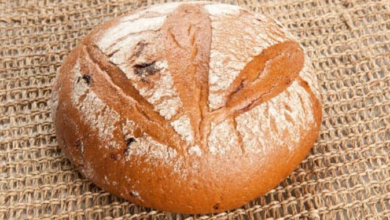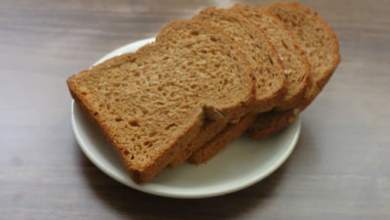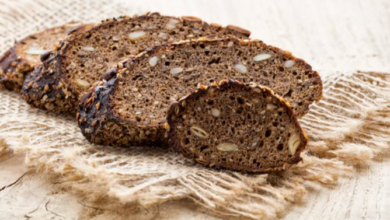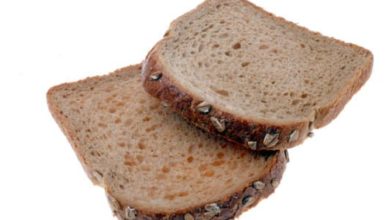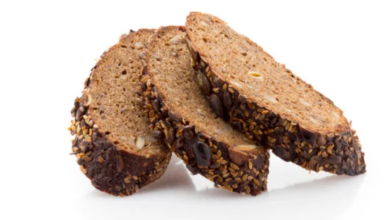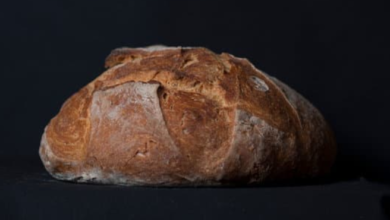Can I Eat Rye Bread Every Day? The Answer Might Surprise You!
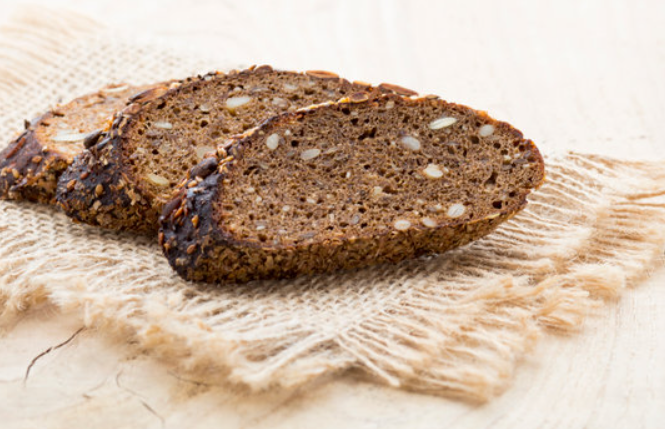
What To Know
- Rye bread is a good source of B vitamins, such as niacin, thiamine, and riboflavin, which are essential for energy production and metabolism.
- If you have no known health conditions and can tolerate gluten, then eating rye bread in moderation (1-2 slices per day) can be part of a healthy diet.
- Yes, rye bread can be part of a balanced diet for people with diabetes due to its ability to help control blood sugar levels.
Rye bread, with its distinctive tangy flavor and dense texture, has been a culinary staple for centuries. Its nutritional value and potential health benefits have made it a popular choice among health-conscious individuals. However, many people wonder, “Can I eat rye bread every day?” This blog post will delve into the nutritional content, health benefits, and potential drawbacks of rye bread to help you make an informed decision about incorporating it into your daily diet.
Nutritional Content of Rye Bread
Rye bread is a rich source of essential nutrients, including:
- Fiber: Rye bread is high in both soluble and insoluble fiber, which can promote digestive health, lower cholesterol levels, and regulate blood sugar levels.
- Manganese: This mineral is involved in numerous bodily functions, including metabolism, bone health, and antioxidant defense.
- B Vitamins: Rye bread is a good source of B vitamins, such as niacin, thiamine, and riboflavin, which are essential for energy production and metabolism.
- Iron: Iron is necessary for red blood cell production and oxygen transport throughout the body.
- Selenium: This antioxidant mineral can help protect cells from damage caused by free radicals.
Health Benefits of Rye Bread
Regular consumption of rye bread may offer several health benefits, such as:
- Improved Blood Sugar Control: The high fiber content of rye bread can slow down the absorption of sugar into the bloodstream, helping to maintain stable blood sugar levels.
- Reduced Cholesterol Levels: The soluble fiber in rye bread can bind to cholesterol in the digestive tract and prevent its absorption into the bloodstream, thereby lowering cholesterol levels.
- Improved Digestive Health: The insoluble fiber in rye bread can add bulk to stools and promote regular bowel movements, reducing the risk of constipation.
- Reduced Risk of Chronic Diseases: Some studies suggest that compounds found in rye bread, such as antioxidants and lignans, may have anti-inflammatory and cancer-fighting properties.
Potential Drawbacks of Rye Bread
Despite its nutritional value, rye bread may not be suitable for everyone:
- Gluten Intolerance: Rye bread contains gluten, a protein that can trigger an immune response in people with gluten intolerance or celiac disease.
- FODMAP Sensitivity: Rye bread contains FODMAPs (fermentable oligosaccharides, disaccharides, monosaccharides, and polyols), which can cause digestive issues in people with FODMAP sensitivity.
- Phytates: Rye bread contains phytates, which can interfere with the absorption of certain minerals, such as iron and zinc.
Can I Eat Rye Bread Every Day?
The answer to this question depends on individual factors. If you have no known health conditions and can tolerate gluten, then eating rye bread in moderation (1-2 slices per day) can be part of a healthy diet. However, if you have any of the conditions mentioned above, it’s best to consult with a healthcare professional before incorporating rye bread into your daily routine.
How to Choose the Healthiest Rye Bread
When selecting rye bread, look for the following:
- Whole Grain Rye: Choose bread made with 100% whole grain rye flour to maximize fiber and nutrient content.
- Limited Ingredients: Opt for bread with a short ingredient list, avoiding added sugars, preservatives, and artificial flavors.
- Sprouted Rye: Sprouted rye bread contains higher levels of nutrients and antioxidants than regular rye bread.
- Sourdough Rye: Sourdough fermentation can increase the bioavailability of certain nutrients and improve digestibility.
Takeaways: Rye Bread: A Nutritious Choice with Considerations
Rye bread can be a nutritious and flavorful addition to a balanced diet. Its high fiber content, essential vitamins and minerals, and potential health benefits make it a worthwhile choice for most people. However, it’s important to consider any potential drawbacks and make informed choices based on individual health factors. By choosing whole grain, minimally processed rye bread in moderation, you can reap the benefits of this ancient grain while minimizing any potential risks.
Quick Answers to Your FAQs
Q: Is rye bread healthier than white bread?
A: Yes, rye bread is generally considered healthier than white bread due to its higher fiber content and lower glycemic index.
Q: Can I eat rye bread if I have diabetes?
A: Yes, rye bread can be part of a balanced diet for people with diabetes due to its ability to help control blood sugar levels.
Q: Is rye bread high in calories?
A: Rye bread is higher in calories than some other types of bread, but it is still a relatively low-calorie food. A 1-slice serving contains approximately 70-80 calories.
Q: Is rye bread good for weight loss?
A: Rye bread can be a good choice for weight loss due to its high fiber content, which can promote satiety and reduce overall calorie intake.
Q: Is rye bread a good source of protein?
A: Rye bread is not a significant source of protein, providing approximately 5-6 grams per slice.
